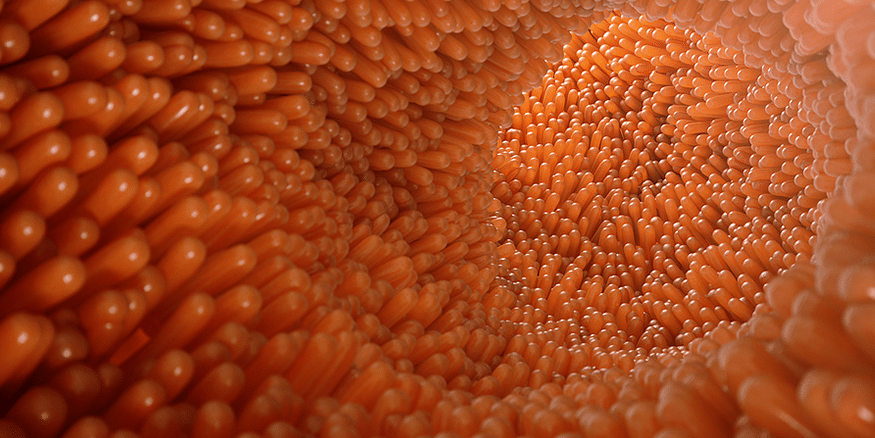
Anti-TNF-α Treatment Restores Gut Barrier
Research done in 2002 confirms that in Crohn’s disease, the protective lining in the gut becomes more permeable than usual, which allows potentially harmful substances to pass through. However, by blocking a specific chemical in the body, not only is inflammation in the gut reduced, but most of the holes in the gut barrier close up as well.
Crohn’s disease (CD) is a chronic inflammatory disease of the digestive system, which can affect any area of the gastrointestinal tract from the mouth to the anus. This may include various parts of the bowel, either in continuity or as isolated areas. It frequently affects the terminal ileum (the end of the small intestine), especially the section that joins with the large intestine or colon. Crohn’s disease is different from ulcerative colitis in that the inflammation can involve the full thickness of the bowel wall while in ulcerative colitis, the gut wall is not penetrated, and the inflammation is limited to the colon.
Symptoms of CD include pain, abdominal cramps, diarrhea, bleeding, and weight loss. An ongoing medication regime may relieve symptoms and sometimes surgery is necessary to remove the portion(s) of the intestine affected by the disease, but there is no cure. CD researchers have thought that a defect in the gut barrier that allows harmful substances to pass through it could cause the disease by triggering an immune response that sets off chronic inflammation in the gut but the literature is unclear whether the leaky gut in Crohn’s patients precedes inflammation or is a consequence of it.
In the study, conducted in Belgium, and published in a 2002 issue of the American Journal of Gastroenterology1, patients received a single infusion of infliximab (brand name Remicade® in Canada). The researchers evaluated inflammation and the gut barrier permeability before treatment and again four weeks later.
Infliximab is a biological response modifier that works by blocking a highly active chemical in the body called tumour necrosis factor alpha (TNF-α), and is indicated for the treatment of both Crohn’s disease and rheumatoid arthritis (update: also now indicated for treatment of ulcerative colitis). Infliximab, a monoclonal antibody, binds to TNF-α like a clamp and prevents it from initiating a devastating chain reaction that leads to the damaging inflammation seen in these inflammatory diseases.
In an accompanying editorial in the same journal, Dr. Hollander, from the University of California, comments that CD, while during the 1970s was considered a relatively rare disorder, now affects .5% of the population. He notes that in this study, “patients’ intestinal permeability and disease activity both decreased significantly after infliximab administration. Therefore, the neutralization of intrinsic TNF-α activity by infliximab was not only successful therapeutically, but also in decreasing the abnormal intestinal permeability of the patients.”
This new research provides evidence that gut barrier function and inflammation are strongly interrelated. However, the question still not answered by this study is, “Which comes first, a leaky gut, or the reaction that triggers chronic inflammation?”
“Treatments such as elemental diet or prednisolone,” the researchers note, “have already shown to induce clinical remission and a decrease in gut permeability in active Crohn’s disease. The precise importance of the present study lies in the fact that precise targeting by human chimeric monoclonal antibodies, shutting off one cytokine, is able to alter an essential property such as gut barrier function in vivo.”
The authors hypothesize that something causes the inflammation first, followed by disturbances in the gut barrier that causes further progression of the inflammation. Therefore, although this study sheds new light on the link between inflammation and gut barrier permeability, further research is needed to test this hypothesis.

